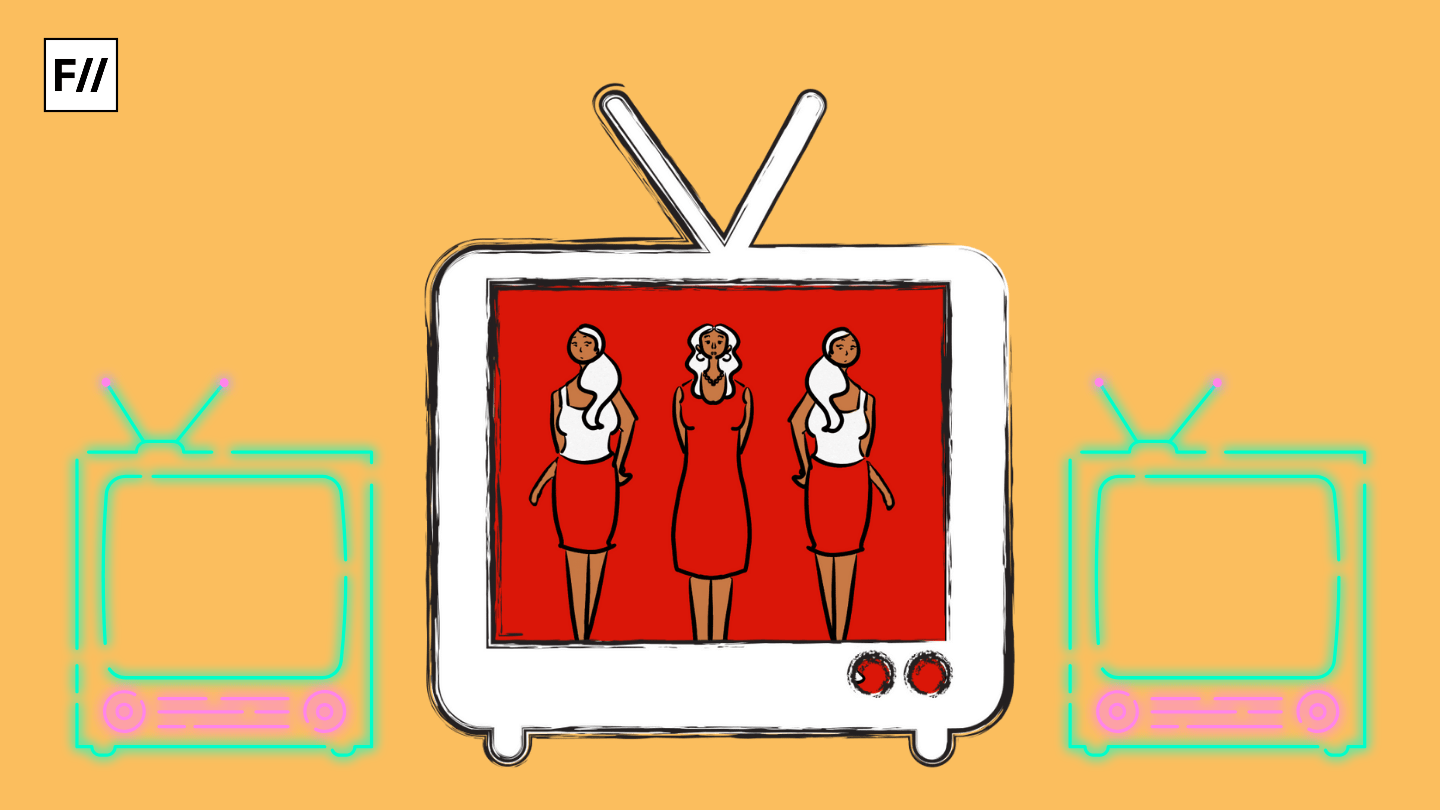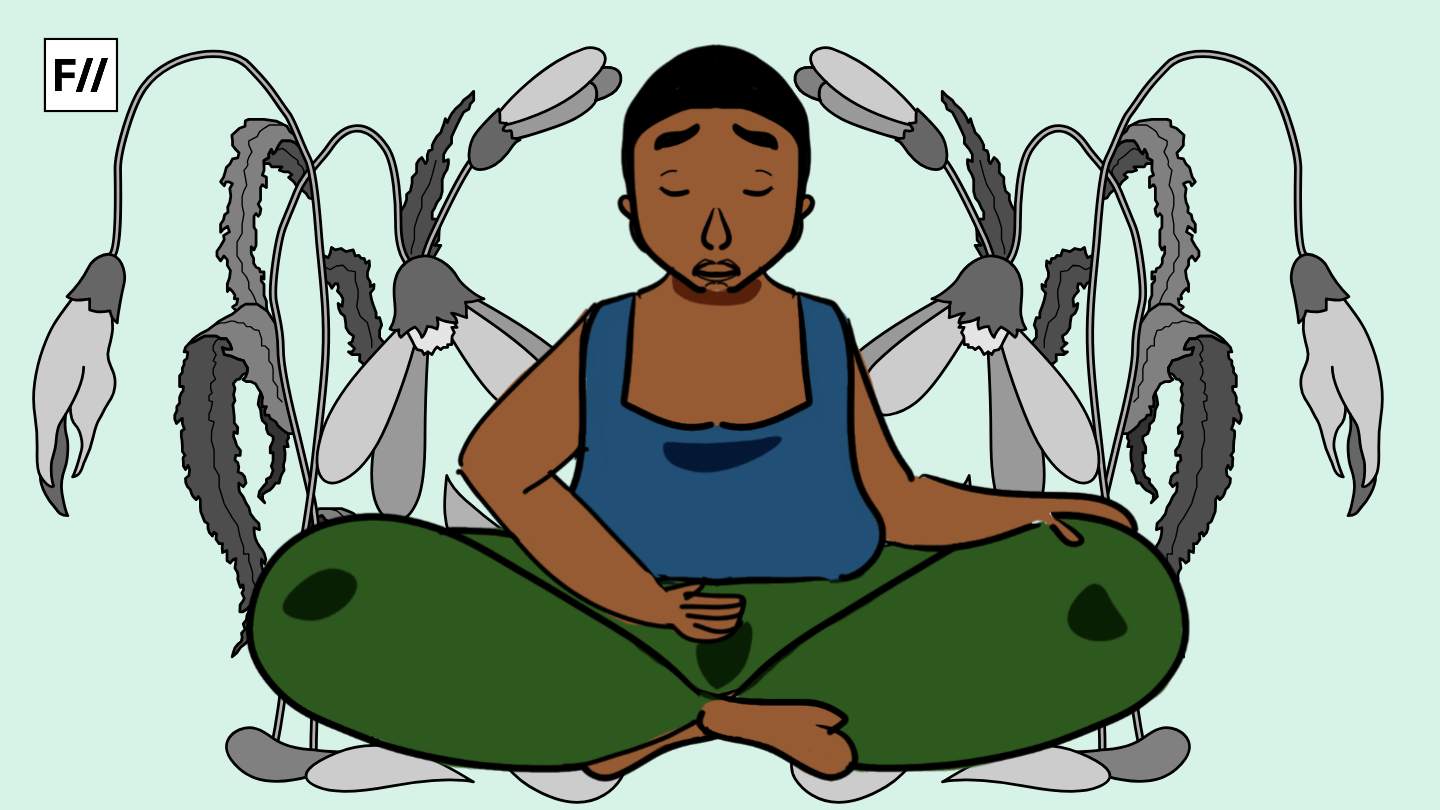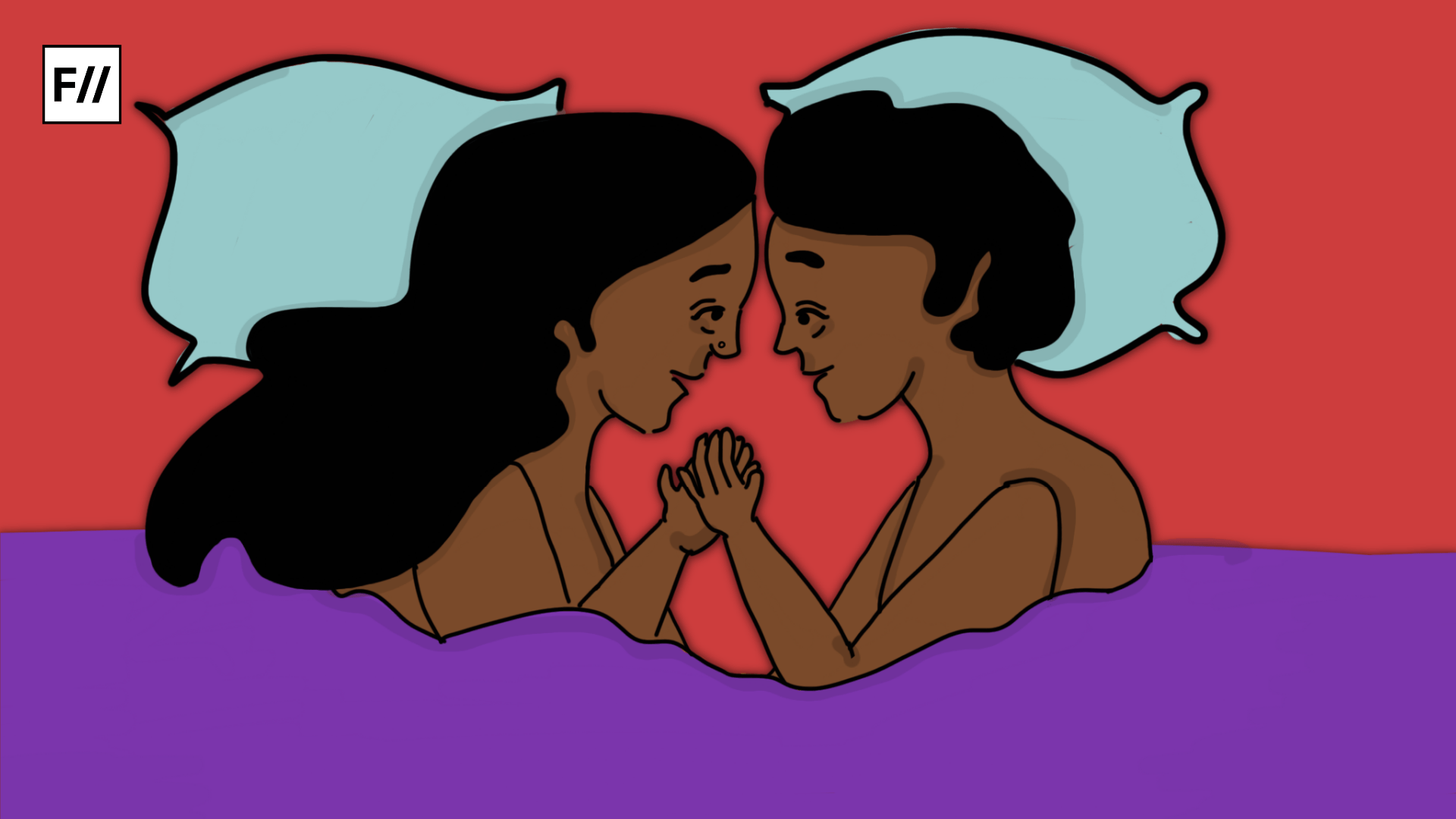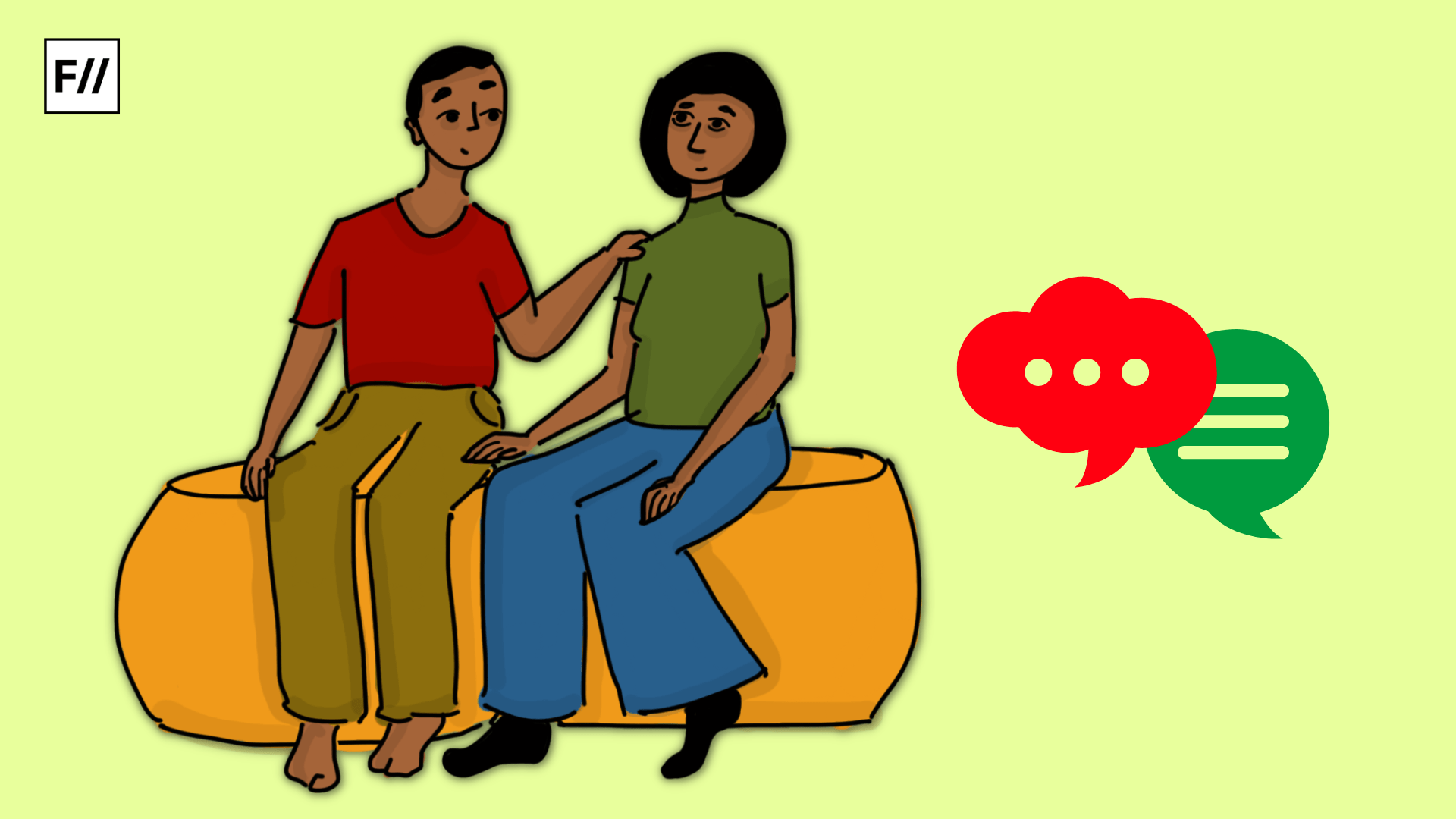The internet is a vast and varied place, and sometimes something comes along that takes the online world by storm and starts impacting how people talk and act in the real world too. One of those things is the viral phrase ‘hawk tuah.’ This catchphrase has sparked a lot of important conversations about the complicated world of heterosexual sex and the pain that often goes hand-in-hand with it.
The phrase ‘hawk tuah’ originated in June 2024, when a woman was interviewed on the streets of Nashville.
The phrase ‘hawk tuah’ originated in June 2024, when a woman was interviewed on the streets of Nashville. In the viral video, Welch was asked what move makes a man ‘go crazy every time’ in bed. Responding in a thick Southern accent, she confidently stated, ‘You gotta give him that hawk tuah and spit on that thang.’
As the interest and memes continue to spread, some online sleuths have sought to uncover the identity of the woman who unexpectedly shot to fame. Although Distractify‘s Jamie Lerner suggested it might be best to respect her privacy—’It’s likely that the hawk tuah girl never expected the video to go viral and may not want the spotlight’—she revealed that her name is Hailey Welch.
Welch’s unabashed response quickly went viral, sparking a cultural movement and a wave of memes, merchandise, and even tattoos featuring the catchphrase. Since going viral in June 2024 for her ‘hawk tuah’ catchphrase, Hailey Welch has collaborated with the original video creators Tim & Dee TV to launch an official merch line featuring t-shirts, hats, and graphics with her slogan. She reportedly signed with United Talent Agency and appeared in a WWE wrestler’s video referencing her saying.

The ‘hawk tuah’ phenomenon has since become a topic of intense discussion, shedding light on the societal expectations and norms surrounding cis women’s sexuality, as well as the sexuality of femmes, including trans individuals. This phenomenon has highlighted the normalisation of pain during heterosexual encounters.
This discussion isn’t just about a catchphrase; it’s about a societal expectation that often glorifies or misinterprets women’s experiences of pain during sex. Pain, particularly in heterosexual encounters, is frequently seen as an inevitable, if not desirable, part of sexual experiences. This perspective overlooks the reality that for many women, pain is neither enjoyable nor a marker of genuine intimacy.
‘Hawk tuah’: the glorification of pain in heterosexual sex
The ‘hawk tuah’ phenomenon has opened a window into the cultural expectation that women must endure pain for the sake of male pleasure. This isn’t a new concept; it’s deeply rooted in societal norms that prioritise male satisfaction over female comfort. The prevalence of products like throat sprays and numbing lozenges from companies like Throat Coat, Oral Pleasure, and Sensual Delights highlights the expectation for women to tolerate discomfort during sex. These products are marketed under the guise of enhancing pleasure, yet they underscore a troubling reality: that women’s pain is often dismissed or normalised.
Many women feel pressured to conform to these painful standards, believing that to be a “real woman” means to endure discomfort without complaint.
Many women feel pressured to conform to these painful standards, believing that to be a “real woman” means to endure discomfort without complaint. This notion is perpetuated by media, pornography, and even peer conversations, where the emphasis is often on male pleasure. The porn industry, in particular, plays a significant role in shaping these expectations. Mainstream porn often portrays women in scenarios where pain is depicted as pleasurable, reinforcing the idea that women should find joy in discomfort. This messaging is further amplified in popular media, with shows like Game of Thrones featuring graphic depictions of sexual violence against women.

This cultural script not only impacts women’s physical well-being but also their mental and emotional health. The expectation to perform and endure can lead to a disconnection from one’s own desires and needs, prioritising the partner’s satisfaction above all else. This dynamic is harmful and perpetuates a cycle where women’s discomfort is normalised and even fetishised. The glorification of pain in heterosexual sex needs to be critically examined and challenged to foster healthier and more equitable sexual relationships.
Reconsidering consent and mutual pleasure
The discourse around ‘hawk tuah’ also brings to light the importance of consent and mutual pleasure in sexual encounters. Consent is often discussed in terms of verbal agreement, but true consent goes beyond just saying yes. It encompasses a genuine desire to engage in the activity without feeling pressured or coerced. The normalisation of pain in sex raises questions about the quality of consent being given. If women feel obligated to endure pain, can their consent be considered fully informed and enthusiastic?
Reevaluating the role of pain in sex requires a cultural shift towards valuing women’s experiences and prioritising mutual pleasure. This means challenging harmful stereotypes and encouraging open conversations about what feels good and what doesn’t. Education around consent should also include discussions about the pressures women face and the importance of mutual satisfaction. By fostering an environment where all parties feel comfortable expressing their needs and boundaries, we can move towards healthier and more respectful sexual relationships, regardless of sexual orientation or gender identity.
As the ‘hawk tuah’ phenomenon continues to spark conversations, it’s crucial to reflect on the broader implications of how we view pain and pleasure in sexual relationships.
As the ‘hawk tuah’ phenomenon continues to spark conversations, it’s crucial to reflect on the broader implications of how we view pain and pleasure in sexual relationships. The glorification of pain in heterosexual sex is a symptom of deeper societal issues that prioritise male pleasure and dismiss female discomfort. Challenging these norms requires a collective effort to educate and promote a culture of consent, mutual respect, and genuine pleasure for all parties involved.

We must consider the messages we send about sex and pain, whether through media, products, or personal interactions. By promoting a more nuanced understanding of these dynamics, we can begin to dismantle harmful stereotypes and create a more equitable and satisfying sexual culture. The goal should be to ensure that everyone, regardless of gender, feels empowered to prioritise their comfort and pleasure in sexual encounters.
About the author(s)
Sohini (they/she) hails from Calcutta and loves to explore and write about all things society, culture, gender. With a background in journalism and English literature - they have finally been able to make having heartfelt conversations a huge part of their life outside of boxes.




